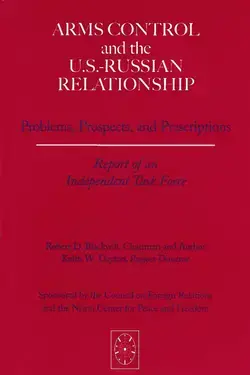
Arms Control and the U.S.-Russian Relationship
Problems, Prospects, and Prescriptions

- Task Force Report
- Analysis and policy prescriptions of major foreign policy issues facing the United States, developed through private deliberations among a diverse and distinguished group of experts.
More on:
Five years after the collapse of the Soviet Union, the United States and Russia stand at a crossroads on arms control. Many of the arms control regimes established by Republican and Democratic administrations are under serious challenge in both countries, with the potential to damage U.S. security. With these concerns in mind, the Council on Foreign Relations and the Nixon Center for Peace and Freedom joined together to sponsor an independent Task Force on U.S.-Russian arms control. The Task Force brief was to assess current and evolving political-military circumstances and the arms control regimes, and to recommend a U.S. policy for the next twelve months. In effect, the Task Force was asked how Americans in particular should think about arms control in the wake of the Cold War's end and its importance, how to preserve what was worth preserving, and how to change what might need to be changed.
The Task Force’s assessment, while sober and clear-eyed throughout, is not pessimistic. Inherent in every prescription is the conviction that sustained, patient, and realistic American diplomacy—if consistently supported by attention from the highest levels of the executive and legislative branches of the U.S. government and of the governments of its allies and friends, and joined with responsible Russian authorities— can produce workable and timely solutions to the most important arms control issues.
More on:
 Online Store
Online Store